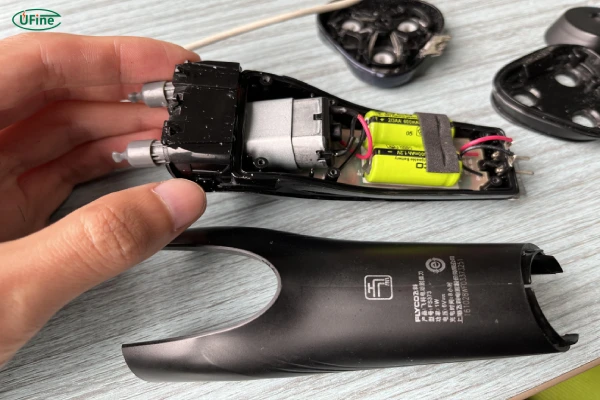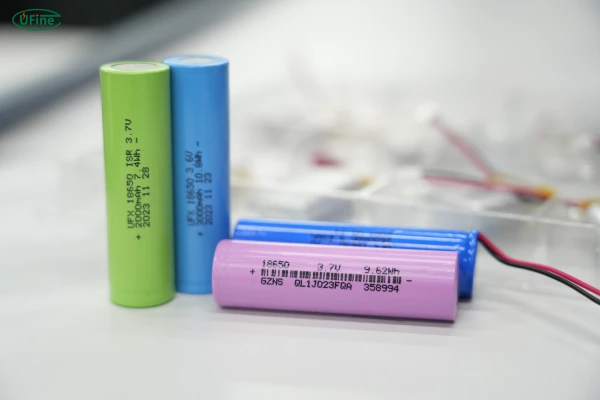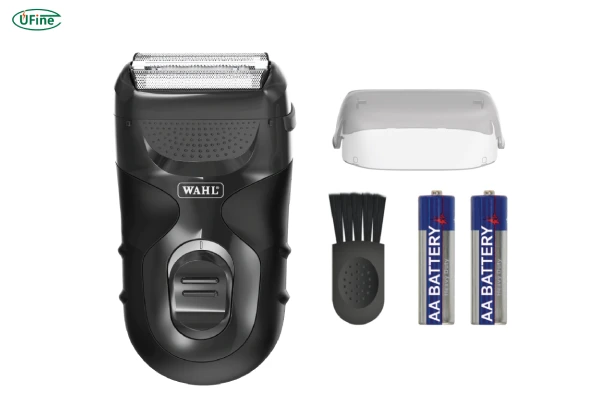Ever been in a rush, only to find your electric shaver dead? Few things are more frustrating. The battery is the heart of your shaver—its performance, runtime, and longevity depend on it. But with so many options—rechargeable lithium-ion, NiMH, or disposable alkaline—how do you pick the best one?
This guide dives deep into rechargeable vs. non-rechargeable batteries in electric shavers, comparing their pros, cons, and real-world performance. Whether you’re a daily shaver, a frequent traveler, or just looking for the most cost-effective solution, we’ll help you make an informed choice.
Part 1. Types of rechargeable electric shaver batteries
Not all rechargeable batteries are created equal. Let’s explore the most common types used in electric shavers:
A. Lithium-Ion (Li-ion) Batteries
Why They Dominate the Market:
- High Energy Density: More power in a compact size.
- Fast Charging: Some models charge fully in under an hour.
- No Memory Effect: You can charge them anytime without reducing lifespan.
- Long Lifespan: Typically lasts 300-500 charge cycles before degradation.
Best For: Premium shavers that need long runtime and quick charging.
B. Nickel-Metal Hydride (NiMH) Batteries
The Middle Ground:
- Affordable: Cheaper than lithium-ion.
- Moderate Lifespan: Around 200-300 charge cycles.
- Eco-Friendly: No toxic cadmium (unlike older NiCd batteries).
Downsides:
- Heavier and bulkier than Li-ion.
- Self-discharge over time (loses charge when unused).
Best For: Budget-friendly shavers where weight isn’t a concern.
C. Nickel-Cadmium (NiCd) Batteries
The Outdated Choice:
- Durable but Toxic: Contains cadmium, harmful to the environment.
- Memory Effect: Must be fully discharged before recharging.
- Rare in Modern Shavers: Mostly found in older models.
Best For: Vintage shavers or industrial-grade devices.
Nickel Cadmium VS. Nickel Metal Hydride Battery
Part 2. Pros and cons of rechargeable electric shaver batteries
Advantages of Rechargeable Batteries
✔ Cost-Effective Long-Term
- No need to buy replacements frequently. Over time, this saves money.
✔ Eco-Friendly
- Reduces battery waste compared to disposables.
✔ Convenience
- Just plug and charge—no last-minute store runs.
✔ Better Performance
- Consistent power output, crucial for motor-driven shavers.
Disadvantages of Rechargeable Batteries
✘ Higher Initial Cost
- Quality lithium-ion batteries cost more upfront.
✘ Degradation Over Time
- After 2-5 years, battery capacity decreases.
✘ Requires Charging Infrastructure
- Forgetting to charge means a dead shaver when you need it most.
Part 3. Types of non-rechargeable electric shaver batteries
These are your classic AA or AAA alkaline batteries—found in basic or travel-friendly electric shavers. Non-rechargeable batteries are simple: once they die, you replace them. This option is especially popular in budget shavers or those designed for travel.
🔸 Alkaline Batteries
The most common type, they are inexpensive and widely available. However, they deliver decreasing voltage as they drain, leading to diminishing performance.
🔸 Zinc-Carbon Batteries
Cheaper than alkaline but far less efficient. These are not recommended for electric shavers due to their short lifespan.
Part 4. Pros and cons of non-rechargeable electric shaver batteries
✅ Advantages:
- Instant replacement: Dead battery? Pop in a new one.
- Low upfront cost: Devices are cheaper.
- Ideal for travel: No need to carry chargers or adapters.
❌ Disadvantages:
- Wasteful: Frequent replacements contribute to environmental harm.
- Performance drops: Gradual power loss impacts shaving quality.
- Recurring cost: Over time, batteries cost more than a rechargeable setup.
Part 5. Is lithium battery the best electric shaver battery?
Absolutely, yes.
Lithium-ion batteries have revolutionized electric grooming. They’re lightweight, fast-charging, and long-lasting. More importantly, they deliver stable voltage, meaning your shave stays smooth until the very end of the battery’s charge. For users who demand consistent, powerful performance and reliability, lithium batteries are unmatched.
This is where Ufine Battery steps in.
🔧 About Ufine Battery
Ufine Battery is a trusted Chinese custom lithium battery manufacturer known for crafting high-quality lithium battery solutions for diverse needs. Whether you need lithium polymer batteries, 18650 cells, ultra-thin batteries, LiFePO4 batteries, or high-temperature/high-rate batteries, Ufine delivers reliable and customizable options.
Ufine specializes in:
- Custom lithium battery packs
- Wide range of sizes, voltages, and capacities
- Fast and professional service
If you’re an electric shaver manufacturer or innovator looking for the most advanced electric shaver battery, Ufine Battery can build a tailored lithium solution for your needs.
Contact Ufine Battery to discuss your custom battery requirements today.
Part 6. Signs your electric shaver battery is dying
You’ll notice:
- Slower motor speed
- Increased noise
- LED warning lights blinking
- Needing to charge more often
- Reduced runtime
Don’t ignore these warning signs—they indicate your battery is nearing the end of its useful life.
Part 7. How to extend the life of electric shaver batteries?
If you’re using a rechargeable electric shaver battery, proper care can add years to its lifespan:
- Avoid full discharges: Especially for Li-ion, partial charges are better.
- Keep it cool: Heat accelerates battery aging.
- Clean your shaver: Reduces strain on the motor and battery.
- Use it regularly: Leaving it idle for months can shorten its life.
- Use the original charger: Overvoltage or mismatched charging damages cells.
Part 8. How to choose the right battery for your electric shaver?
It all depends on your habits and needs.
- Frequent shaver? Get a lithium-ion rechargeable.
- Occasional traveler? A AA-powered non-rechargeable model might suffice.
- Eco-conscious user? Rechargeables are the greener option.
- Performance lover? Choose a premium shaver with a high-capacity lithium battery.
Again, if you’re developing electric shavers or upgrading your battery supply chain, Ufine Battery is your one-stop partner for high-quality, customizable lithium solutions.
Part 9. Final thoughts
Choosing between rechargeable and non-rechargeable batteries in electric shavers is about balancing cost, convenience, sustainability, and performance. For most users today, rechargeable lithium batteries deliver the best experience—longer life, consistent power, and eco-friendly operation.
If you’re a brand or OEM seeking a premium electric shaver battery supplier, don’t settle for generic solutions. Contact Ufine Battery—China’s leading custom lithium battery manufacturer—for expert guidance and tailored battery packs built for innovation.
Part 10. FAQs
Can I replace my shaver’s rechargeable battery myself?
Yes, many models allow user replacement—check compatibility first.
How long should a rechargeable shaver battery last?
Typically 2-5 years, depending on usage and care.
Do disposable batteries work well in high-end shavers?
They can, but performance will be weaker than rechargeables.
Why does my shaver die quickly even after charging?
Battery degradation or a faulty charger may be the culprit.
Are lithium batteries worth the extra cost?
Absolutely—superior lifespan and performance justify the price.
Related Tags:
More Articles

Tips to Make Your Hair Clipper Battery Last Longer
Wondering how long a hair clipper battery lasts? Learn about battery types, lifespan factors, charging tips, and how to extend its life. Read now!
Top Tips to Make Your Skin Care Device Battery Last Longer
Maximize your skin care device battery life with expert tips on charging, cleaning, and usage. Avoid common mistakes and keep your device running like new!
Long-Lasting Beauty Devices: Find the Best Rechargeable Battery!
Discover the best rechargeable beauty devices, compare battery types, and learn how to choose and maintain the longest-lasting beauty tool for your needs!
60Ah Battery: The Complete Guide You Need Before Choosing One
Find out if a 60Ah lithium battery is right for you. Learn about its lifespan, costs, maintenance tips, and how to pick the best one!
Is a 3000 mAh Lithium Battery Enough for Your Device?
Wondering what a 3000mAh battery means? Learn about its power, lifespan, types, and how to choose the best one for your device!






